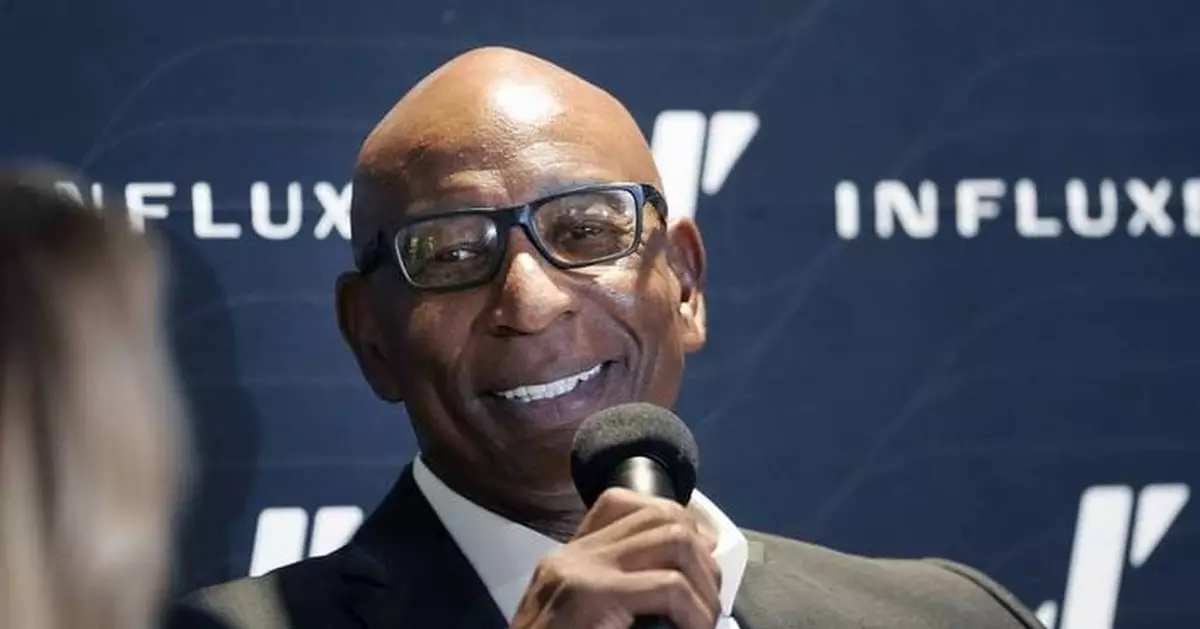DALLAS (AP) — Eric Dickerson certainly understood the irony of being back at his alma mater to be part of a panel discussion about NIL money for college athletes.
That was Tuesday at SMU, the only school to ever get the so-called NCAA death penalty for a pay-for-play scandal during the Mustangs' best seasons before their debut in the Atlantic Coast Conference this year.
“I’ve always thought athletes should be paid, I really have,” Dickerson said Tuesday.
“Am I glad to be here talking about? Yes, because I’ve always felt that it was unfair for athletes to play a sport and not get anything," he said. "Kids got suspended for taking tennis shoes, taking a meal, taking a girl out to dinner because somebody gave them $50. I just thought it was wrong. The NCAA, they can make millions and billions and it was cool. And I'm not a fan of the NCAA. I hate them."
Dickerson joined Tyler Jaynes, CEO and founder of NIL solution company Influxer, and SMU safety and captain Jonathan McGill to discuss NIL and how schools and student-athletes are navigating the changing landscape of college athletics.
Dickerson, the Pro Football Hall of Fame running back, again acknowledged that he got $500 a month — sometimes $1,000 — while playing for the Mustangs more than four decades ago. He sent some, and sometimes all, of the money home to his great aunt who raised him and adopted him.
“You want to call it NIL deal when I was at SMU ... that's what it was," he said. "It really was nothing. If you think I played hard for $500 a month, no, I did not. I played because I loved the sport.”
Dickerson ran for 4,450 yards and 47 touchdowns at SMU from 1979-82, and the Mustangs went 21-1-1 over his final two seasons — 11-0-1 as a senior.
That was back in the days of the old Southwest Conference, when there were plenty of schools getting in trouble for recruiting violations.
It wasn't until 1987 that SMU got the ultimate penalty from the NCAA after being a repeat offender. The Mustangs program was shut down that season and didn't return until 1989.
Under current NCAA rules, college athletes can earn revenue from their name, image and likeness.
Asked what he could have made if that was the case during his days at SMU, Dickerson said, “a lot, lots of money.”
When he's asked if he is bitter or mad, Dickerson instead says he is “so happy” for the current players that are able to make the NIL money.
The eighth-ranked Mustangs (11-1, 8-0 ACC, No. 8 CFP) are in the ACC championship game on Saturday against No. 18 Clemson (9-3, 7-1, No. 17 CFP) in their league debut.
AP college football: https://apnews.com/hub/ap-top-25-college-football-poll and https://apnews.com/hub/college-football. Sign up for the AP’s college football newsletter: https://apnews.com/cfbtop25
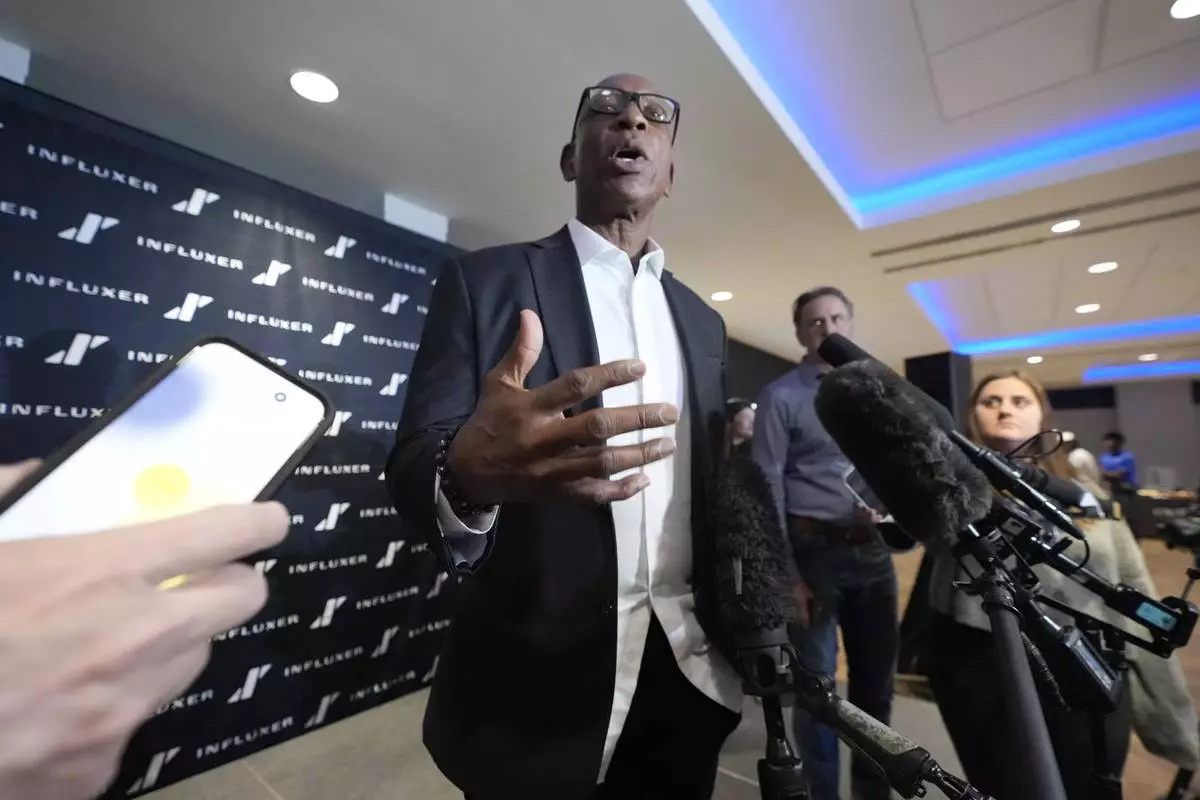
Former NFL and SMU running back Eric Dickerson speaks to media after a panel discussion about NIL and NCAA college football, Tuesday, Dec. 3, 2024, in Dallas. (AP Photo/LM Otero)
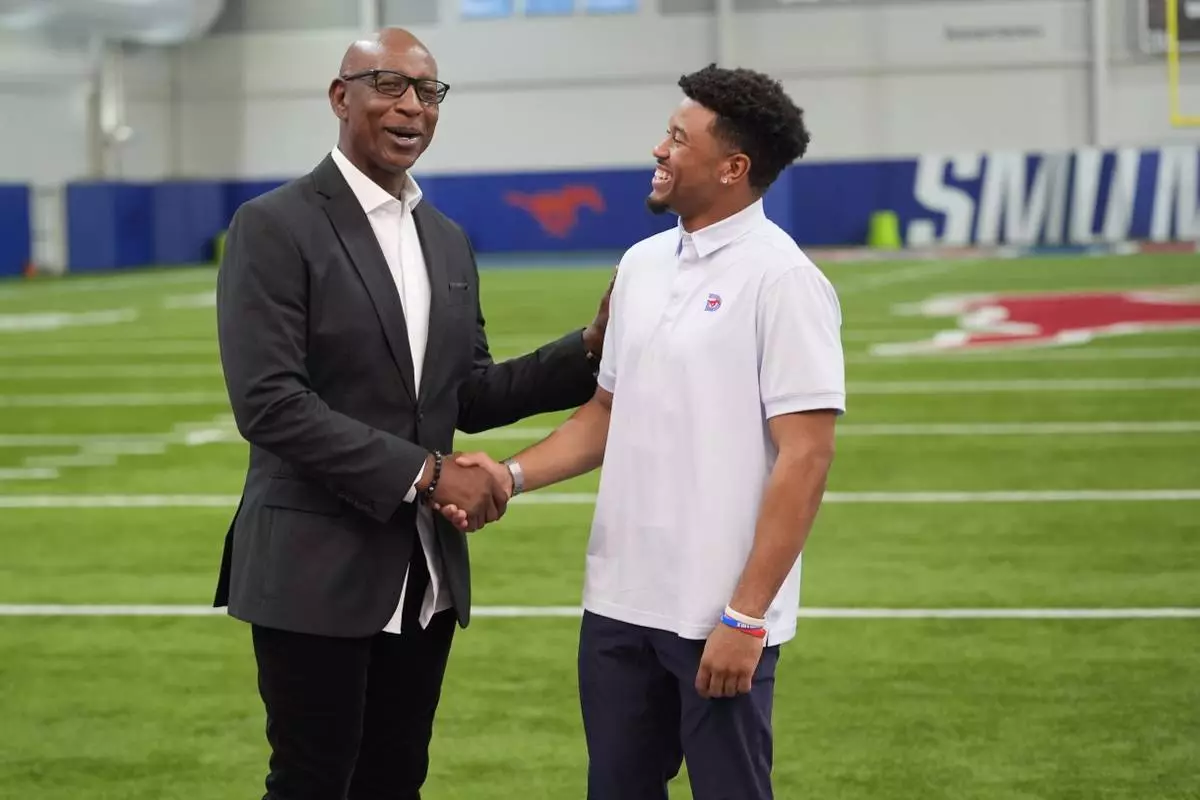
Former NFL and SMU running back Eric Dickerson left, chats with SMU safety Jonathan McGill after a panel discussion about NIL and NCAA college football, Tuesday, Dec. 3, 2024, in Dallas. (AP Photo/LM Otero)
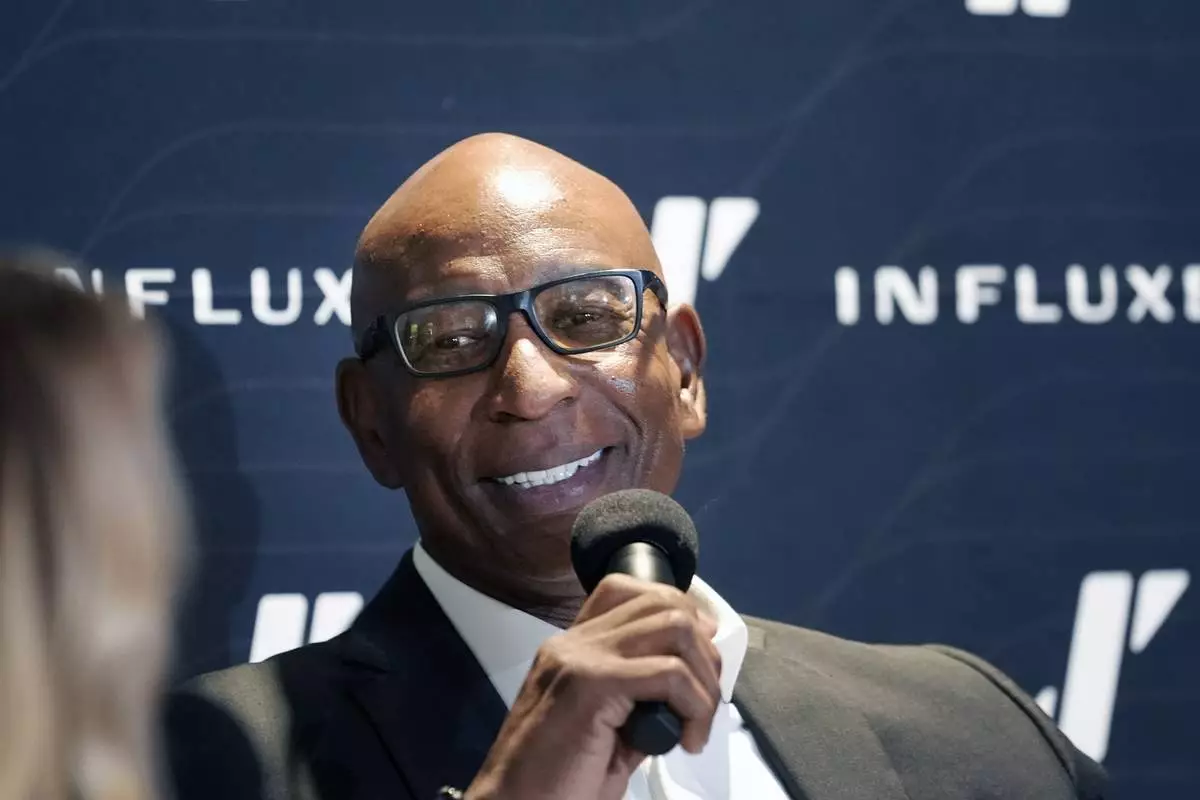
Former NFL and SMU running back Eric Dickerson speaks during a panel discussion about NIL and NCAA college football, Tuesday, Dec. 3, 2024, in Dallas. (AP Photo/LM Otero)
The Supreme Court is set to hear arguments on Wednesday in just its second major transgender rights case, a challenge to a Tennessee law that bans gender-affirming care for minors.
The nation’s top court will be weighing whether Tennessee’s law violates the equal protection clause of the 14th Amendment, requiring that people in similar circumstances be treated the same under the law. Both sides in the case claim they are acting to protect minors from harm.
At least 26 states have adopted laws restricting or banning such care for minors, and most of those states face lawsuits.
Here's the latest:
The Supreme Court almost always issues its decisions by early summer, usually before the end of June. The transgender health case could be one of the last cases decided, which is typical of highly contentious issues. One additional potential cause for delay is the Trump administration could weigh in soon after Trump takes office. It’s not clear how that might affect the case.
Chase Strangio will be the first openly transgender attorney to argue before the nation’s highest court, representing families who say Tennessee’s ban on health care for transgender minors leaves their children terrified about the future.
Strangio will bring months of intense legal preparation to the case as well as hard-won lessons from his own experience.
“I am able to do my job because I have had this health care that transformed and, frankly, saved my life,” he said. “I am a testament to the fact that we live among everyone.”
Strangio grew up outside of Boston and came out as trans when he was in law school. Now 42, he’s an American Civil Liberties Union attorney whose legal career has included representing former Army intelligence analyst Chelsea Manning, challenging a ban on transgender people serving in the military and helping win an LGBTQ+ worker-discrimination case at the Supreme Court. He’s also the father of a 12-year-old, the son of a father who supports Trump, and has a close relationship with his Army-veteran brother.
▶ Read more about Strangio and his history as a transgender advocate
The Supreme Court’s only other major case on transgender rights was in 2020 when the court ruled that workplace discrimination against LGBTQ+ people was sex discrimination in violation of the federal civil rights law commonly known as Title VII.
The court concluded, in separate cases involving a gay man and a transgender woman, that they were discriminated against because of their sex. Justice Neil Gorsuch, an appointee of Donald Trump’s in his first term in the White House, wrote the 6-3 opinion for the court. Chief Justice John Roberts was the only other conservative member of the court in the majority.
The nation’s top court will be weighing whether Tennessee’s law violates the equal protection clause of the 14th Amendment, requiring that people in similar circumstances be treated the same under the law. Both sides in the case claim they are acting to protect minors from harm.
Transgender attorney Chase Strangio will represent families who say Tennessee’s ban leaves them terrified for the future and that access to this kind of care is life-saving.
Tennessee, meanwhile, will argue before the Supreme Court that treatments like puberty blockers and hormones carry risks for young people and its law protects them from making treatment decisions prematurely.
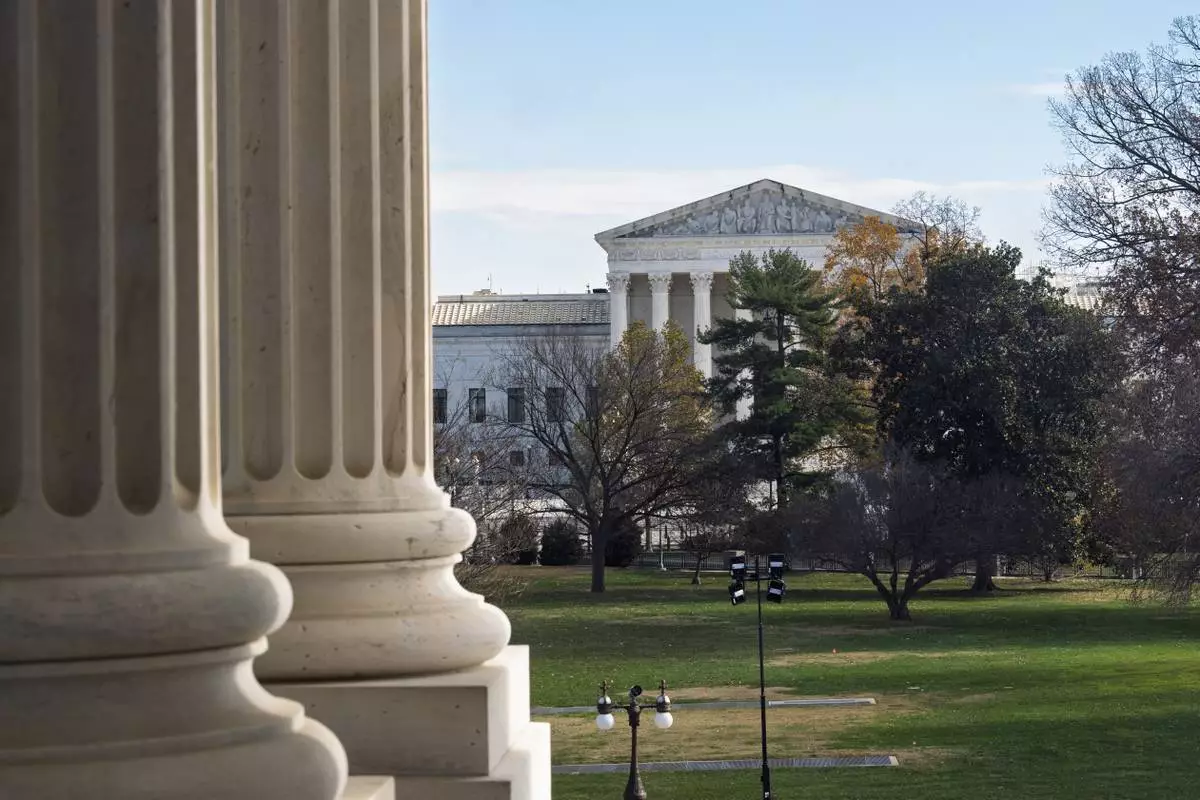
The Supreme Court is framed by the columns of the Capitol in Washington, Tuesday, Dec. 3, 2024. T (AP Photo/J. Scott Applewhite)

FILE - Advocates gather for a rally at the state Capitol complex in Nashville, Tenn., to oppose a series of bills that target the LGBTQ community, Feb. 14, 2023. (AP Photo/Jonathan Mattise, File)
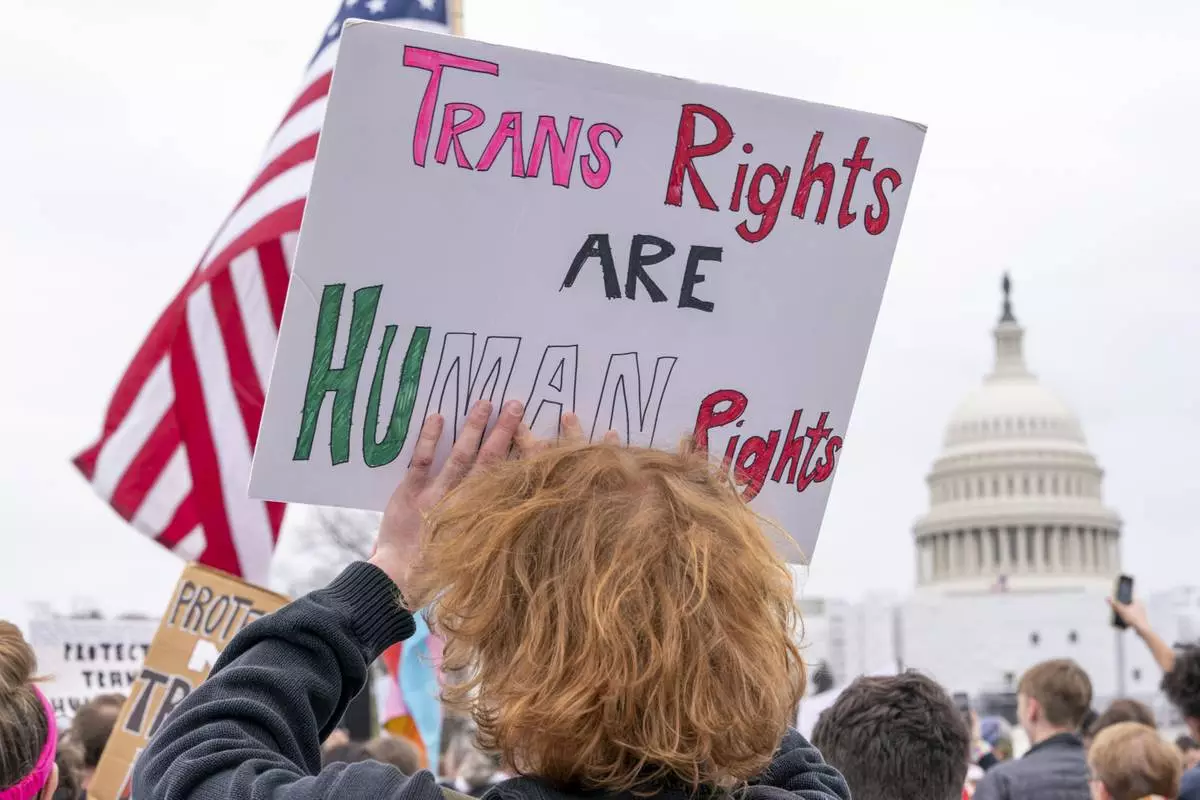
FILE - People attend a rally as part of a Transgender Day of Visibility, Friday, March 31, 2023, by the Capitol in Washington. (AP Photo/Jacquelyn Martin, File)
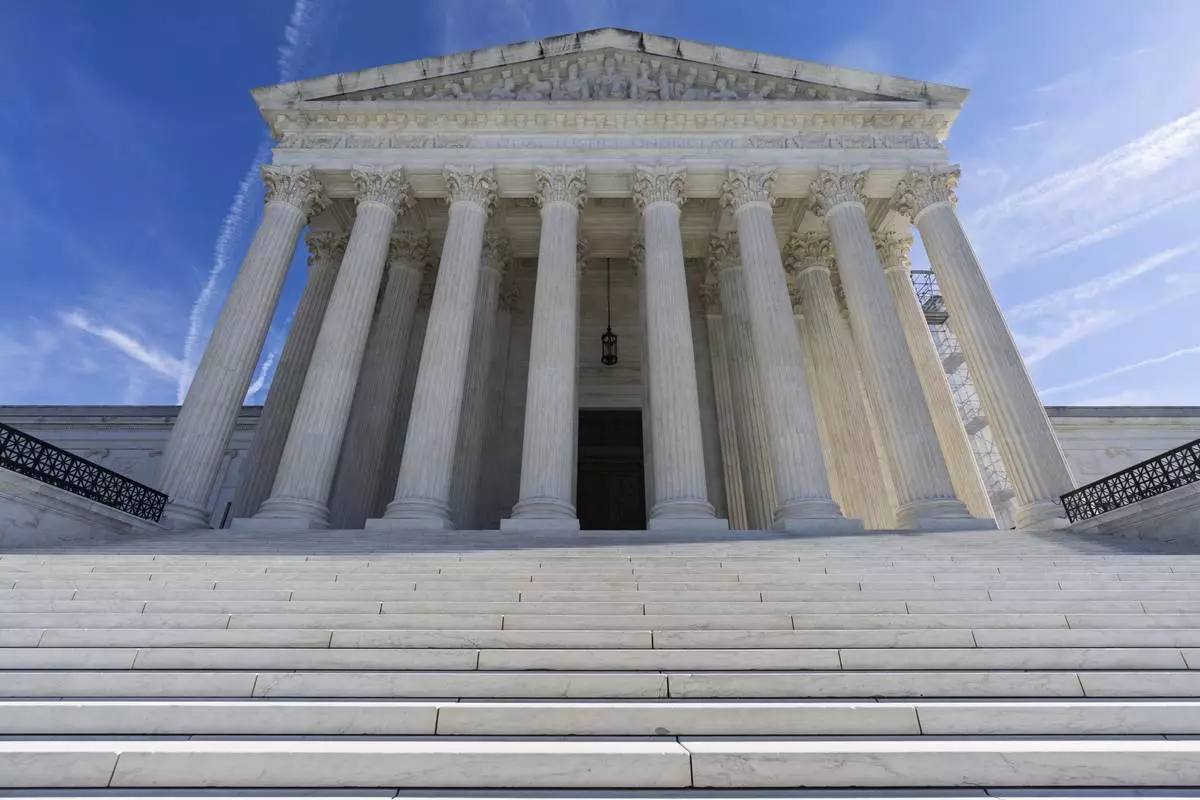
FILE - The Supreme Court is seen in Washington, Nov. 2, 2024. (AP Photo/J. Scott Applewhite, File)





